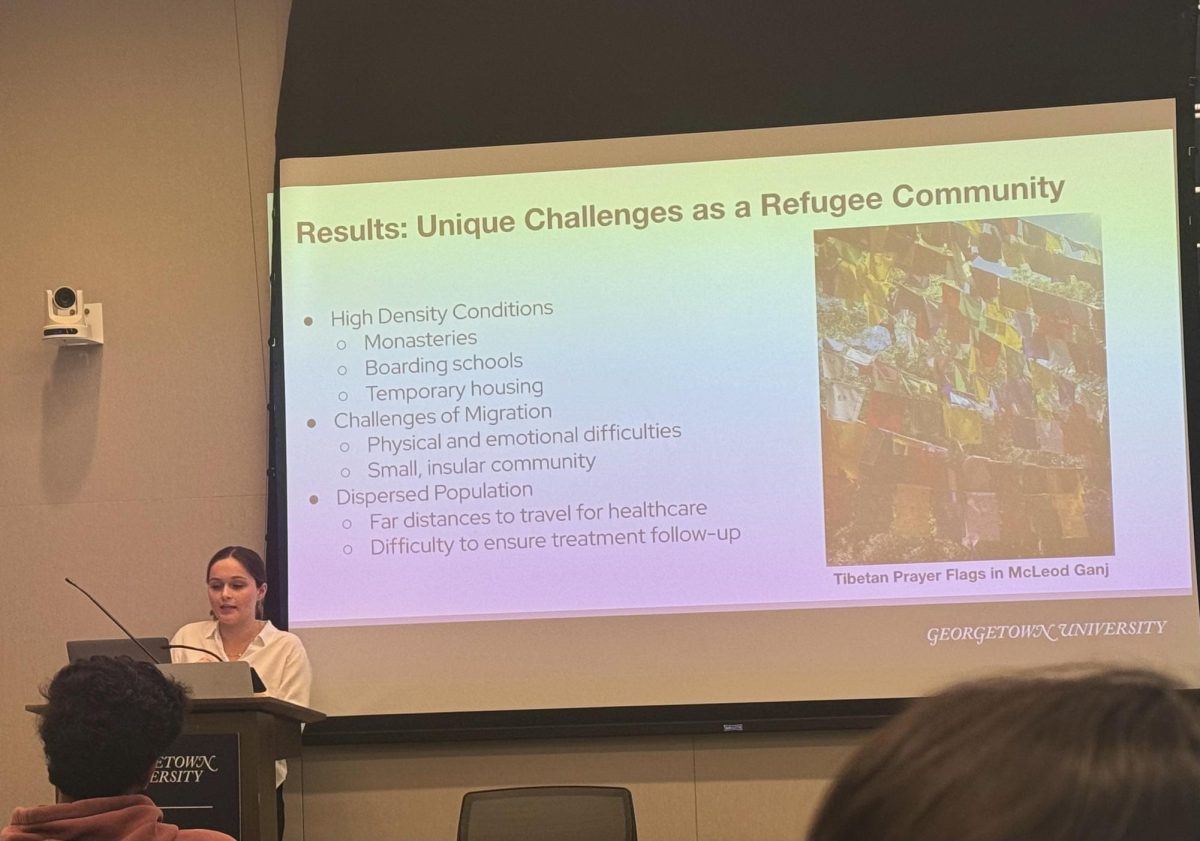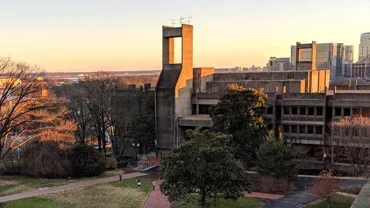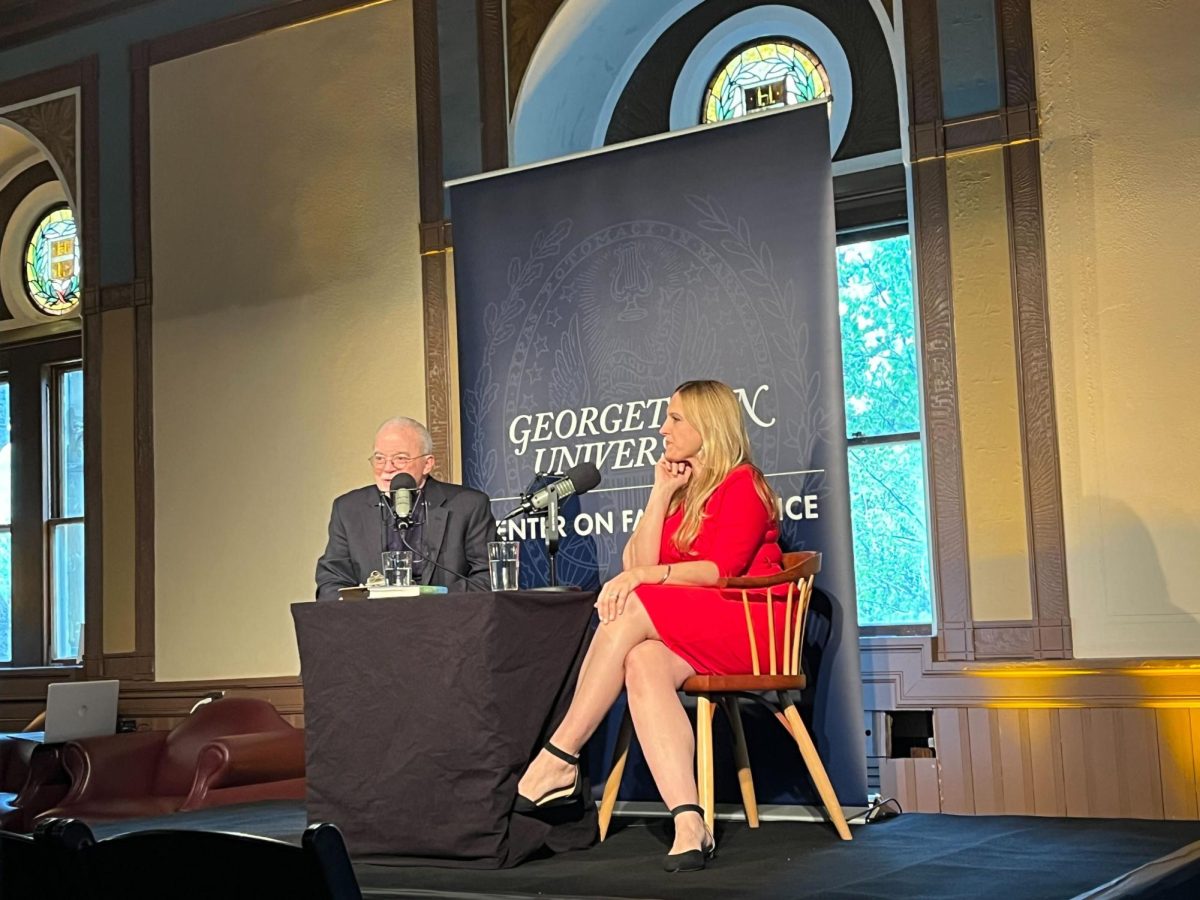Last Tuesday, millions of Shia Muslims spent their entire day at the mosque to commemorate Ashura, a momentous day of grief and reflection. But at Georgetown University, I was pressured to choose between my faith and my schoolwork.
For Georgetown students that ascribe to a faith besides Christianity, commemorating a religious occasion is exhausting. Classes are still in session and a flawed absence policy for religious observances prevents students from fully engaging in their worship.
To allow non-Christian students to practice their faiths, Georgetown should extend its absence policy to reduce the burden of missed work. However, the policy should only be a necessity for less-celebrated religious holidays. For non-Christian holidays widely celebrated on campus, school should be closed.
Georgetown’s absence policy stipulates that students who are unable to attend class to observe a religious holiday will not be penalized and can make up missed work. The policy seems reasonable, but, in practice, dissuades students from taking an absence and piles deadlines on those who do.
Currently, the policy states that a student can only request an extension for assignments due on the day of the absence. However, students are still expected to meet deadlines for their classes the very next day. As a result, students who take an absence often need to cram work after, or even during, services, turning the holiday into a headache.
Georgetown should amend its religious observance policy to allow students more flexibility in requesting extensions for deadlines around religious holidays. Christian students enjoy days off before and after Christmas; at the very least, non-Christian students should be allowed time to breathe, as they simultaneously attend classes after holidays and attempt to meet accumulating deadlines.
Additionally, the current policy only “encourage[s]” professors to accommodate these holidays; professors can — and have — scheduled critical exams on these dates. For example, Jewish Student Association board member Melinda Blumenstock’s (COL ’22) professor assigned a midterm on Yom Kippur, the exhaustion from which prevented her from attending services that evening.
Even if students were to make up the exam, they would still have to take it shortly after the holiday or take it early and be at a disadvantage compared to their peers. Professors should be required to avoid scheduling exams around non-Christian holidays.
By extending its policy to increase deadline flexibility and prevent exams around holy days, Georgetown could allow non-Christian students to fully engage in their worship and celebrations.
However, the university should only apply such an absence policy to less celebrated religious occasions on campus. Classes should be canceled for widely celebrated holidays.
Despite its Catholic identity, Georgetown has historically served as a leader in facilitating the worship of other faith traditions; the institution became the first American university to hire a Muslim chaplain in 1999 and a Hindu priest in 2016.
Georgetown should continue to be at the forefront of enacting change and become the first American university to close school on widely celebrated non-Christian holidays. While other universities have also failed to take this step, high schools have taken the initiative to act independently. Most notably, New York public schools close on Rosh Hashanah, Yom Kippur, Eid-al Fitr, Eid-al Adha, Diwali and Lunar New Year.
If high schools can recognize the importance of non-Christian holidays, Georgetown — an institution that purports to place high importance on religion — has no excuse.
Moreover, the continuation of classes on non-Christian holidays is isolating for students of other faiths and cultivates a culture that treats these occasions as inferior to Christian celebrations.
For example, the first day of training for Georgetown residential assistants this past summer was held on Eid-al Adha — the Muslim equivalent of Christmas — despite the date being posted on Georgetown’s religious holy day calendar. However, when I requested the day off, the Office of Residential Living asked me to justify why I needed to spend an entire day celebrating, instead of splitting my time between training and my family.
Critics of closing school on non-Christian occasions argue that canceling class for one holiday would mean closing school for every holy day. However, Georgetown should examine its demographic and only close for religious holidays widely celebrated on campus.
The demographics of the two largest faith minorities on campus are not negligible; at Georgetown, 450 Jewish undergraduates and 400 Muslim undergraduates are deprived of fully participating in their holy days.
The university can afford to cancel classes for a few additional days during the year. Georgetown is in session for 14 more days than Yale University, 10 more than Harvard University and 10 more than the University of Notre Dame. Georgetown can close school for certain non-Christian holidays, without diminishing the value of its education.
Days from now, Jewish undergraduates at Georgetown will weigh the benefits of their worship with the risks of missing class for Rosh Hashanah. The university’s current policy will compel many of them to treat the holy day as any other.
Georgetown’s efforts to foster religious inclusivity are meaningless if students cannot equally celebrate their faith.
Yumna Naqvi is a junior in the School of Foreign Service. Sacred Space appears online every other Wednesday.





















Hoya Alum • Sep 27, 2019 at 12:00 pm
Georgetown is a *Catholic* school, and advertises itself as such. This should not then be a surprise to you that only Catholic holy days are accommodated for in the academic calendar. There are hundreds of different faiths in the world. Should we accommodate every important holiday for each and every religion? Or are you just concerned with your own? If you’re concerned with the former, you won’t be able to go more than a week without having to observe some religious holiday that doesn’t effect you nor the majority of your fellow students at Georgetown.
As an atheist, I’d much rather attend the classes I paid for than sit at home because someone else’s religion prohibits them from doing anything but praying. But to each their own!